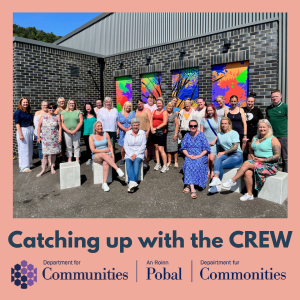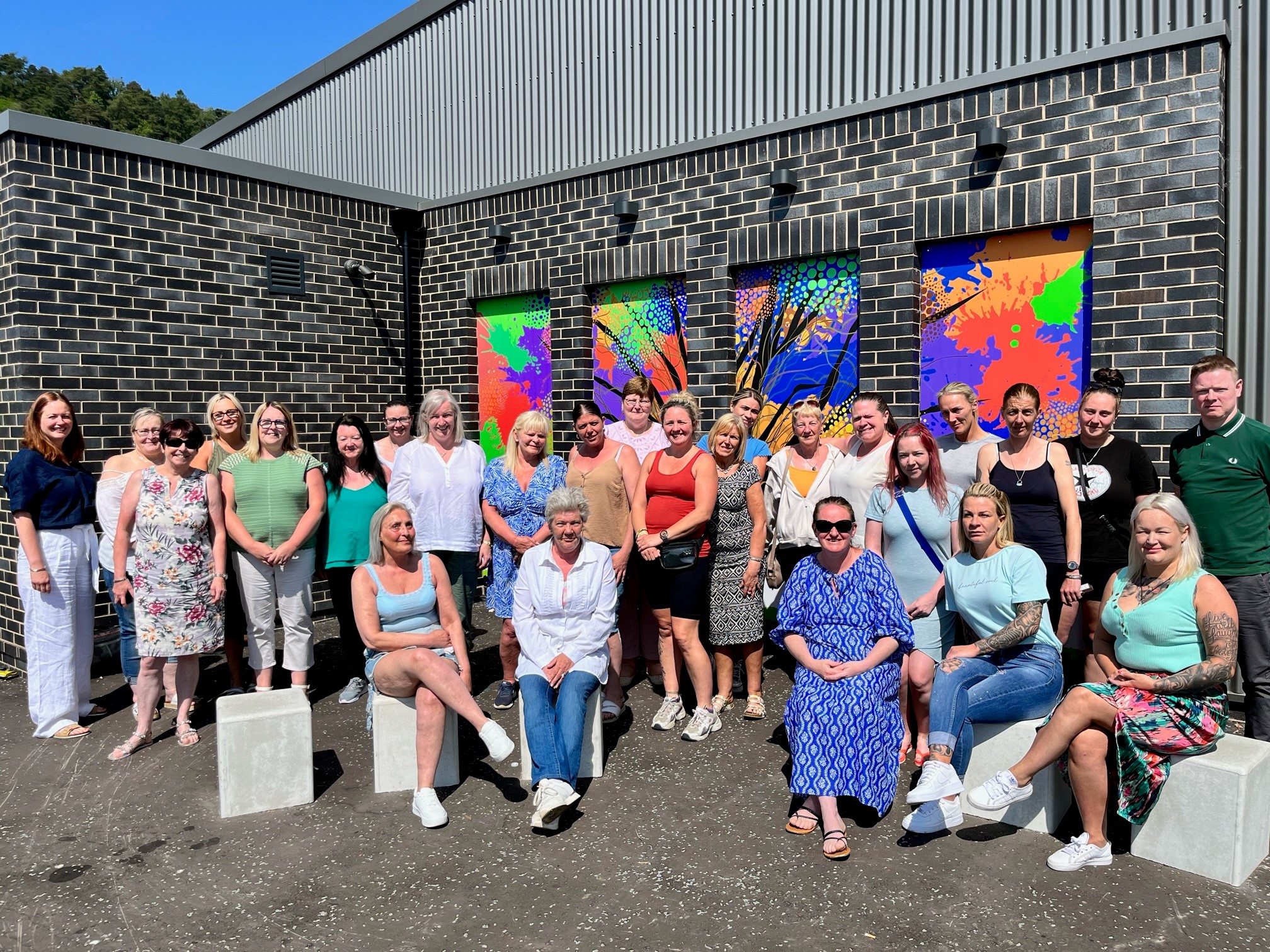The Tackling Paramilitarism, Criminality and Organised Crime Programme have today launched the next phase of its ‘Ending the Harm’ public awareness campaign.
The campaign highlights how people are being exploited by paramilitary and criminal gangs through illegal money lending, ultimately facing drug-related intimidation.

Speaking at today’s launch in Belfast, Adele Brown Director of the NI Executive Programme said: “The first part of the ‘Ending the Harm’ campaign demonstrated how lenders are to blame, not the people taking the loan. Criminal lenders are only interested in controlling vulnerable people for their own gain. This next stage of the advertising campaign expands on this and is a realistic example of how quickly these lenders move to extreme intimidation, threats and violence.
“Criminal and paramilitary groups often portray themselves as defenders of communities. In reality they target vulnerable people and families. They prey on people struggling with the cost of living; people with addictions; people with mental health issues; and people who are just in the wrong place at the wrong time.
“We hear regularly about the impact of drug-related intimidation. We hear of criminals using the fear of, and connections to, paramilitary groups to intimidate, control and coerce. Very often, people are being forced to store, move or deal drugs. It is important we expose these hidden harms and stop the shame and secrecy that keeps people under the control of these criminals. People have lived with paramilitary and criminal control, violence, threats and intimidation for far too long.”
Today’s launch event included contributions from a number of organisations.
Geraldine Hanna, Commissioner Designate for Victims of Crime said: “Illegal money lending can have a profound impact on victims, their families and the local community. It is typically the most vulnerable people in our communities that end up in financial debt to community-based criminal gangs. We want to work with government to urgently put in place alternatives to support vulnerable people with no access to credit so that we can eradicate this scourge on society.”
Bob Stronge, Advice NI Chief Executive, said: “People are turning to our Debt Advisors in increasing numbers. In the last quarter we have seen a spike in the number of people contacting advice centres and our regional helpline, some of whom are turning to illegal and high-cost money lenders to make ends meet.”
Advice NI offers help and support to those in any type of debt. Contact the confidential advice helpline on 0800 915 4604.
Detective Superintendent Emma Neill from the Police Service of Northern Ireland’s (PSNI) Organised Crime Branch, which is responsible for the Paramilitary Crime Task Force (PCTF) said: “This welcome campaign highlights the cruel reality of illegal money lending.
“Those who supposedly ‘help’ vulnerable people by offering loans, leave nothing but a trail of destruction. It’s not just the victims who subsequently suffer. Families and loved ones are inevitably left to pick up the pieces.
“We, along with our partners, are committed to tackling such criminality, whether it is drug dealing or illegal money lending. We will continue to investigate, and bring before the courts, those groups or individuals who make their living from exploiting and intimidating others.”
This new stage of the campaign continues the story of the single mother from the first advertisement (Illegal Money Lending – YouTube). It shows the ongoing coercion and intimidation which she is experiencing from a paramilitary group and how they are intimidating her to store drugs and money against her will.
The Ending the Harm Campaign is part of the Northern Ireland Executive Programme to Tackle Paramilitary Activity, Criminality and Organised Crime, which involves Government Departments, law enforcement agencies, local councils and community and voluntary sectors working together to break the cycle of violence.
ENDS
Notes to editors:
1. Anyone with information on criminality and/or intimidation or any other crime should contact 101. Information can also be provided to the charity Crimestoppers, with total anonymity, on freephone 0800 555 111 or online at www.crimestoppers-uk.org. There is no caller line display and no 1471 facility.
2. This new stage of the campaign continues the story of the single mother from the first advertisement (Illegal Money Lending – YouTube). It shows the ongoing coercion and intimidation which she is experiencing from a paramilitary group and how they are intimidating her to store drugs and money against her will.
3. Visit the campaign website, www.endingtheharm.com, to get the full story. The website includes information on where people can go for help and support as well as some further real-life stories (that have been anonymised) and further rationale behind this campaign.
The campaign television advertisement will go live after 9pm this evening (Tuesday 10 October). It will be shown on TV, on demand TV, social media, and other online platforms. The campaign also features two posters that will run across a selection of outdoor advertising sites.
You can access the new campaign materials (TV ad and campaign posters) at the following link: https://drive.google.com/drive/folders/1xu4XlKCPx9DT2X9Dl9K102UCqnMcj9gE?usp=sharing
Please also note the TV ads are post watershed and should therefore be edited accordingly for use on news bulletins or on social media platforms.
4. The 40 second TV ad will be launched after 9pm tonight (Tuesday 10 October) on UTV and Channel 4. It will also be on Sky Adsmart, Video on Demand channels ITV X and Channel 4 On Demand.
· The outdoor ads will run from 9 October.
· Social media ads will feature across Snapchat, Facebook, and YouTube.
· The first burst of the campaign will run until the end of the current financial year (31 March 2024).
5. To find out more about the Tackling Paramilitarism, Criminality and Organised Crime Programme, please click here. This advert being used to launch this campaign is the latest in a series of adverts to highlight the impact that illegal lending can have on victims.
For further queries, please contact Damian Boylan, Communications Manager for the Tackling Paramilitarism, Criminality and Organised Crime programme: 07815651982 / damian.boylan@justice-ni.gov.uk





